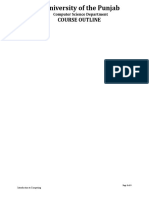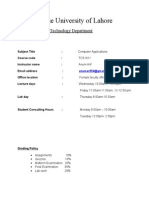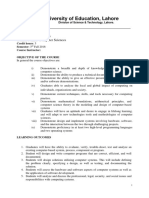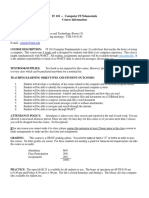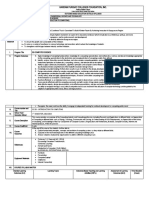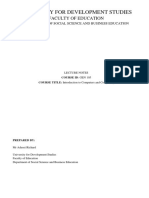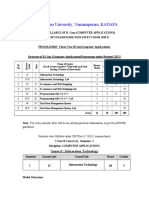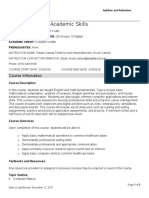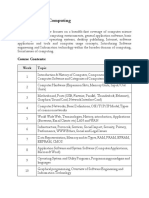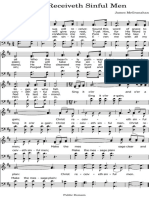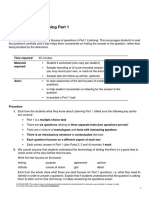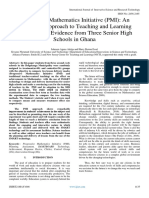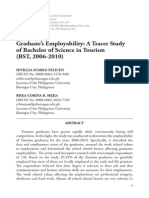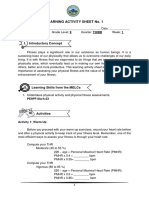0% found this document useful (0 votes)
36 views5 pagesCourse Curriculum - Introduction To Computing - Year 1
The document outlines the course details for 'Introduction to Computing' (FENG 121) at the University of Sierra Leone, including objectives, learning outcomes, and module content over a 15-week semester. It covers basic computer hardware and software, word processing, spreadsheet, and internet basics, with various assessment methods contributing to the final grade. Additionally, it includes policies on discrimination, disability, and academic conduct.
Uploaded by
easesaymichael02Copyright
© © All Rights Reserved
We take content rights seriously. If you suspect this is your content, claim it here.
Available Formats
Download as PDF, TXT or read online on Scribd
0% found this document useful (0 votes)
36 views5 pagesCourse Curriculum - Introduction To Computing - Year 1
The document outlines the course details for 'Introduction to Computing' (FENG 121) at the University of Sierra Leone, including objectives, learning outcomes, and module content over a 15-week semester. It covers basic computer hardware and software, word processing, spreadsheet, and internet basics, with various assessment methods contributing to the final grade. Additionally, it includes policies on discrimination, disability, and academic conduct.
Uploaded by
easesaymichael02Copyright
© © All Rights Reserved
We take content rights seriously. If you suspect this is your content, claim it here.
Available Formats
Download as PDF, TXT or read online on Scribd
/ 5



